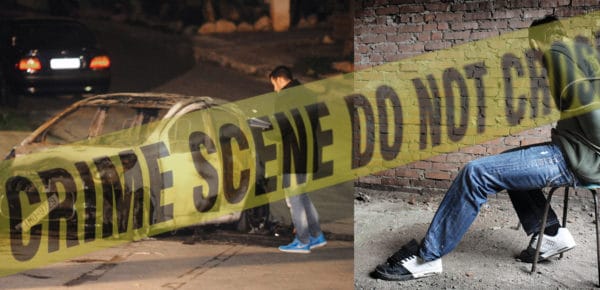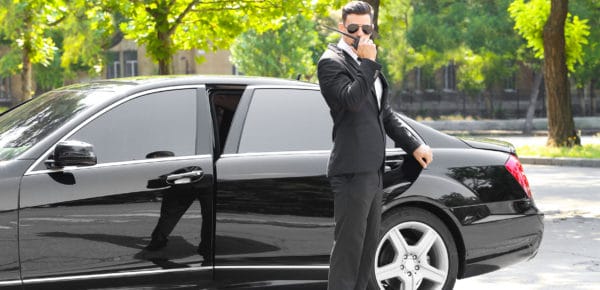
Bodyguard: his main characteristics are training, physical condition and… mind.
The profession of bodyguards or security escorts is historically one of the oldest ones. The original Greek name “σωματοφύλακας”, which is the exact translation of the word “bodyguard”, originated from the famous bodyguard corps introduced by Philip of Macedonia and Alexander the Great. This group of bodyguards consisted of seven men, almost all from the noble Macedonian class and at the same time high ranking operatives of the army. After the conquest of Mallio, Alexander the Great appointed Pefkestas as the eighth bodyguard who, along with Leonnatos, Perdikas, Ptolemy, Aristos, Lisimachos, Pithos and Sotir formed the team of protection escorts.
Another characteristic example is Leonidas, the famous king that stood against the Persians with his 300 soldiers in order not to instigate political conflicts in Sparta. These 300 soldiers were his personal guard, as well as the protectors of Sparta. It is only fair to mention the Praetorian guards, the personal escort team used by the Roman emperors. The institution of the Praetorians was banned by Constantine the Great in the 4th century AD. Should we continue with the history of bodyguards several pages would be written about it. Let’s just focus on today.
Through this new chapter we would like to analyze step by step the profession of the bodyguard or the protection escort.
High sense of protection
A security escort should be characterized by a high sense of protection, morals, dedication, composure, courage, politeness and confidentiality. These attributes are the basis of the character of the person that will decide to work in the field. There are some other skills that don’t come naturally, but can be mastered through hard practice, such as physical condition, the ability to take initiative through building up confidence, plus discipline and patience. Nevertheless, the sum of skills and attributes necessary for a reliable bodyguard is much more extensive than this, but the aforementioned are already a very good start.
Close protection
Something else that goes without saying, but it doesn’t hurt to specify. Close personal protection will not be successful if relied only in puffed up muscles. It requires the greatest weapon of them all; the mind. So, use your mind, forget the “perfect moment”, get out of your comfort zone and do what you need to do in order to become better: train! Our profession is constantly evolving due to the continuous and diverse forms of threats. On our part, we must strive to perform as best as possible and resolve crisis and problems bloodlessly. Only by being constantly alert and not complacent do we achieve this. Apart from constant training, both with the team and individually, sacrifice, dedication and staying in touch with innovation will save lives.
Three training schools
As far as training is concerned, three basic schools dominate the field. The biggest companies that offer security training draw their techniques and instructors from those schools so as to achieve the optimum knowhow level. The American school (Secret Service), the British (Royal Military Police/ CP) and the Israeli (various agencies). It is mandatory to stress the key part that good physical condition plays. It is of no surprise that in one of the best relevant agencies in the world (RMP/CP) most candidates fail because of their physical condition and injuries (which are for the most part caused by precisely this lack of good shape).
Cover and Evacuate
It is worth mentioning an example of a tactic implemented by perhaps the best protection service, the US Secret Service, called “Cover and Evacuate”. Cover of the VIP and evacuation from the location. Without a doubt, the principle of the specific agency is also the principle that best represents the personal protection field in general: pro-activeness! This one word embodies the fundamental state of mind necessary to be close protection professionals; the ability to foresee situations in order not to come to the point of needing to defend against a threat. Knowledge of similar tactics (and a variety of other tactics), as well as the necessary good physical shape, are acquired through the right training. The right training is preceded by a thorough research in order to discover the properly structured and up to date security training providers.
Training
Training can be divided into basic sectors, such as first aids, weapons handling, self-defense, aggressive and defensive driving, threat and danger analysis and assessment, surveillance and hostile activity detection, information gathering, body language, in theory and in practice. The established companies in the field spend a lot of training time, and rightfully so, in practical exercises. In addition to that, it is crucial that on the last day of the training session a real life scenario exercise takes place. This exercise would simulate real conditions and the stress that we would have to deal with in the case of a real incident, aiming to give the students the opportunity to implement the techniques that they have been taught, to display the skills acquired, while at the same time giving the instructor the opportunity to evaluate and correct as needed the students’ performance.
Criminality and terrorism
Criminality and terrorism in Greece used to be two different concepts that are nowadays presenting several common features and common actions. Although up until recently, there was no obvious connection between the two, it has become apparent lately that they go hand in hand and that they have common targets. These groups operate in several fields, such as weapons trade, larceny, extortions, homicides, but the main activity that has increased lately and is pertinent to our profession is kidnapping attempts.
Recently, one thing that has started to become obvious due to the latest kidnapping attempts is that the aggressor groups are both professional criminals who planned correctly before the act and amateur criminals with very little organization and knowledge. However both groups aim to extract money and, unfortunately, my personal opinion is that they will target the defenseless members of families (as it’s already happening in countries such as Brazil, Mexico, etc).
All these incidents could be prevented by the mere presence of even a small protection detail that will exhibit professionalism in the way they travel (e.g. alternating routes and avoiding routine movements). In addition, different kinds of terrorist groups work in two different speeds. There are those that strike approximately every two years and those who strike once and then remain inactive, an interesting and new tactic. The threat is asymmetrical and this is why all the skills mentioned above, such as alertness and training, are mandatory.
Since the specific topic is considered urgent, on our next issue we will revisit it with advice on what to avoid (e.g. ways of predicting and preventing, exit routes and, if inevitable, negotiations with the kidnappers). It sounds tedious but it is of the outmost importance. Most if not all kidnapping attempts can be avoided by the presence of protection escorts. Our intent is not to overstress the abilities of the security escorts, but to make clear that thanks to them the criminals will prefer an easier target.
One simple advice. You might be in danger, but at least don’t become a soft easy target, another notion that we will analyze extensively in the future. For now, be alert and chose people and teams carefully in order to form an efficient security detail.
Before you set off, consider if you understand the requirements of the profession and if you can “take” the difficulties that it entails.
Remember the saying:
STAY SAFE!
Republication from www.securityreport.gr
The profession of the bodyguard – Τεύχος 28
(Αναρτήθηκε στις 19/02/2014)
Nikolaos Papadopoulos is writing,
Security consultant (CPO)





